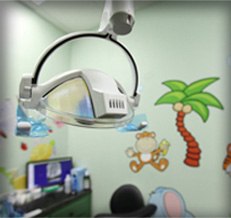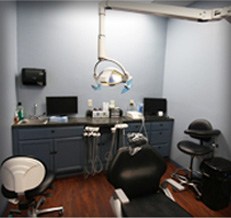 Baby teeth are designed to fall out eventually, and cavities among children are extremely common. In fact, they are one of the most common childhood diseases. For those reasons, many parents reason that dental decay in their young ones is not a big deal. They might even delay taking their children to the dentist if they complain of a toothache or other oral symptoms. That kind of thinking is a mistake! As a family dentist in San Antonio is here to explain, treating childhood cavities is sometimes a matter of life and death.
Baby teeth are designed to fall out eventually, and cavities among children are extremely common. In fact, they are one of the most common childhood diseases. For those reasons, many parents reason that dental decay in their young ones is not a big deal. They might even delay taking their children to the dentist if they complain of a toothache or other oral symptoms. That kind of thinking is a mistake! As a family dentist in San Antonio is here to explain, treating childhood cavities is sometimes a matter of life and death.
The Danger of Untreated Cavities
A cavity begins when acids produced by bacteria eat through the tooth enamel and create a hole. At first, the cavity may just affect the outer layer of a tooth and not cause any obvious symptoms. Left untreated, however, it will continue to worsen. It will penetrate into the dentin (the second layer) of a tooth and eventually invade the pulp (the innermost layer).
When dental decay reaches the center of a tooth, a monstrous toothache may result, but that is not the only sad consequence of this type of problem. The infection that instigated the cavity may spread into the tissues around the tooth. It can therefore affect the gums and the jawbone. Even worse, the dangerous bacteria can sneak into the bloodstream and affect major organs, including the brain. In some cases, an oral infection can even cause death.
Although deaths from infections that began as a cavity are rare, they do happen. In fact, hundreds of thousands of ER visits every year are related to dental problems. In 2007, a 12-year-old boy in Maryland even died because he did not receive timely care for an abscessed tooth.
More Reasons to Care for Baby Teeth
While the above information may be alarming, you don’t have to live in constant fear that a dental problem will endanger your child’s life. As long as you teach your child good oral hygiene habits and regularly bring them in for professional dental care, it is highly unlikely that they will suffer from a serious oral infection.
Your diligence in caring for your little one’s smile may not only preserve their overall health, but it could also:
- Help your child to speak clearly
- Prevent your child from missing school or not paying attention in school due to dental pain
- Enable your child to enjoy the self-confidence that can only come from a healthy smile
- Promote proper development of your child’s jaw
Your child’s smile is a precious thing, and not just because it warms your heart. Taking care of your little one’s baby teeth can do much to promote their overall wellness — and maybe even save their life!
About the Author
Dr. Racha W. Kadamani is the leader of our team at Laith Family Dentistry. She has more than 18 years of experience, and she maintains active memberships in a number of prestigious organizations, including the American Dental Association and the Texas Dental Association. As a mother herself, she has a special place in her heart for young patients. If you would like to learn more about her and how she can help your child’s smile to thrive, contact our team at 210-782-6842.







